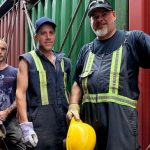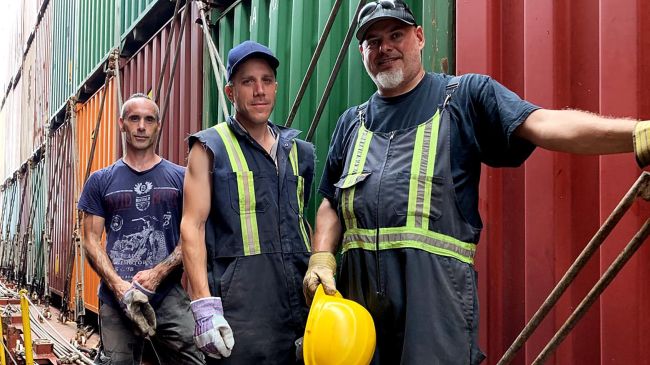
Photos: Steel Cutting Of M/V Janssonius, Highest Rated Ice-Strengthened Cruise Ship
January 2, 2020
Nautilus Hails ‘Early Retirement’ Agreement For Dutch Seafarers
January 2, 2020
The ITF “Dockers’ Clause” comes into force in Canada and Europe. A lot has been said about what is commonly called the Dockers Clause, but it’s worth reviewing exactly what the clause is and what it means to ITF affiliated dockers’ unions.
Let’s start from the beginning:
- Under ITF policy, seafarers’ affiliates have the right to sign what are known as ITF Agreements on Flag of Convenience ships that are beneficially owned in their nation. These collective agreements cover seafarers working aboard and must adhere to certain principles in order to be approved as ITF collective agreements.
- These agreements are bargained with shipping representatives from the International Maritime Employers Council (IMEC). ITF affiliates and ITF secretariat form a bargaining committee. Together, the ITF committee and IMEC bargain in what is known as the International Bargaining Forum (IBF). The ITF committee takes its bargaining direction from affiliated seafarers’ and dockers’ unions.
- After a five-year ITF campaign to reclaim lashing for dockworkers, on 19-22 February 2018 the ITF and Joint Negotiating Group (JNG) approved the terms of the new IBF Agreement that included a revised Dockers’ Clause and the new implementation procedure that clarifies dockers’ right to claim and carry out lashing and other cargo handling services in ports.
- The amended clause took effect worldwide in February, 2018, with two exceptions: Europe and Canada. It was agreed that the new clause would come into force in those jurisdictions on January 1, 2020, allowingterminal operators, shipping companies and especially feeder services to make the necessary adjustments.
After a long wait, 2020 has arrived.
So let’s take a look at what that clause actually says:
“Neither Seafarers nor anyone else on board whether in permanent or temporary employment by the Company shall carry out cargo handling services in a port, at a terminal or on board of a vessel, where dock workers, who are members of an ITF affiliated union, are providing the cargo handling services. Where there are not sufficient numbers of qualified dock workers available, the ship’s crew may carry out the work provided that there is prior agreement of the ITF Dockers Union or ITF Unions concerned; and provided that the individual Seafarers volunteer to carry out such duties; and those Seafarers are qualified and adequately compensated for that work. For the purpose of this clause “cargo handling services” may include but is not limited to: loading, unloading, lashing, unlashing, checking and receiving.”
The Dockers’ Clause applies to all ships crews covered by ITF CBAs (nearly 15,000 worldwide) and ITF Dockers’ affiliates claiming or reclaiming lashing worldwide.
The clause is an important, hard-won improvement to our existing language, bargained at the insistence of ITF Dockers’ affiliates — and rightly so.
The clause represents a recognition of the importance of having trained, experienced dockers undertaking this dangerous work. The new clause will end the problem of fatigued seafarers undertaking lashing particularly on feeder services in Europe. It’s a win for both seafarers and dockers in an environment where some shipowners continue to exploit seafarers and dockers,
As we move through an uncertain future of automation and the ongoing struggle for jurisdiction, we loudly declare that lashing is dockers’ work. We expect some struggles in our respective national campaigns to claim lashing, but the ITF and its affiliates are committed to this struggle — and there is no acceptable outcome except victory.
Work has already begun in dockers affiliates in Europe and in the Port of Montreal, Canada, with ITF Inspectors committed to supporting the implementation of the clause.
If you see seafarers doing dockers’ work, or a ship that arrives unlashed, let your union representatives and local ITF inspector know, every inspector is trained to resolve the issue and defend dockers’ jurisdiction to lash.
Together, we will secure our work, our docks and the world’s cargo. Dockers’ doing the heavy lifting worldwide.
Reference: itfseafarers.org
Source: Maritime Shipping News



